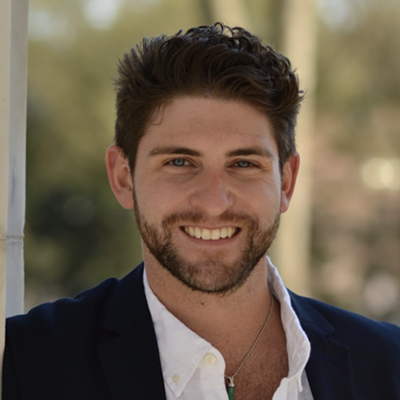
On April 1, award-winning Austin-American Statesman reporter Tony Plohetski tweeted that the body of a young man had been pulled from the depths of Lady Bird Lake. It was the second such incident in the past two months.
Plohetski's tweet has since garnered over 1,000 likes, arguably giving root to the online speculation that a serial killer is stalking Texas' capital city.
Since then, social media users have dubbed the theoretical slayer the Austin Serial Killer and the Rainey Street Ripper, and the media has also weighed in. The Houston Chronicle wondered aloud in a headline "Is a serial killer stalking men in Austin, Texas," and Fox News shared the breathlessly titled piece "Bodies stack up in Texas city."
Amid the rampant speculation, a dedicated Facebook group called Lady Bird Lake Serial Killer/Rainey St Killer has exploded, growing from 20,000 members in April to its current tally of nearly 100,000. That growth has come even as authorities attribute the string of Austin deaths to accidents and downplayed the notion that a killer is stalking the streets.
Described as a "place to discuss the possible serial killer in Austin Texas" and a safe space to "advocate for the family and friends" of alleged victims, the group is run by administrators with no experience in criminal investigations. Some don't even reside in Austin.
Experts said the assertions aired in the online forum are evidence of the U.S. epidemic of misinformation. Among the claims fostered in the group are that the Austin Police Department is involved in a conspiracy to cover up the murders.
"Back before the dawn of the internet, it was harder for people to persist in denial of truth," said Althea Delwiche, a Trinity University communication professor who researches fake news and online disinformation. "But now, there's a loss of faith in media outlets, in police departments, and there's a real sense that the facts are what you make of them."
The Facebook group's administrators didn't respond to the Current's requests for comment on this story. Instead, an administrator from Arkansas named Carissa Morgan said she would put the publication in touch with family members of the dead with whom group members are "in regular communication." So far, that hasn't happened.
Just the facts
What police and online speculators can agree on is that four men between the ages of 30 and 40 have been discovered in Austin's Lady Bird Lake since the beginning of the year.
Jason John, 30, was last seen walking the urban lake after a night out with friends on Rainey Street. His body was recovered more than a week later on Feb. 13, and the corpse of Clifton Axtell, 40, was discovered less than month after. On April 1, authorities confirmed they'd found the body of 33-year-old Jonathan Honey. He was last seen grabbing a bite to eat at a Taco Truck on Rainey Street. The body of John Christopher Hays-Clark, 30, was discovered on April 15.
Austin Police said they don't expect foul play in any of the four cases, saying all appear to be accidental drownings.
"One common theme of the drownings in Austin this year is the combination of alcohol and easy access to the lake, which has numerous access points," Austin PD wrote in a statement. "Many of these access points can be challenging to see at night."
During a press conference following the discovery of Hays-Clark's body, Austin PD spokesman Michael Bullock assured reporters there was no reason to believe a killer was stalking young men.
"We definitely understand people that have concerns, and if we did have any information that there was something specific that was concerning or suspicious related to criminal activity, those are things that we try to convey to the public as soon as we possibly can," he said.
Conspiracies are hard work
Those explanations apparently didn't satisfy some members of the Lady Bird Lake Serial Killer Facebook group. Many posted comments accusing the police of a conspiracy to cover up the evidence of a killer, potentially to save the state capital millions in lost tourism revenue.
Indeed, the group appears to be sticking by that claim.
When Texas Monthly published an article earlier this month debunking the conspiracy theories floated in the online group, the administrators cleaned house. Posters who agreed that the theories had no basis found themselves kicked out in a mass dismissal.
Some in the group even accused Peter Holley, the article's author, of being "bought off" by Austin PD. Others said they had sent him direct messages on Facebook to voice concerns about alleged "inaccuracies" in his reporting.
St. Mary University's Law Professor Gerald Reamey, a former legal advisor to the Irving Police Department, said he has no reason to believe Austin police could cover up the presence of a serial killer, even if they tried.
"There's a lot of information that leaks from police departments," Reamey said. "If you want to find out what's going on, go talk to some police officers. A lot of them will say they have no comment. But you'll find somebody eventually who will feel like whatever is happening isn't right, and they'll say, 'Well, don't quote me on this, but here's what's going on...'"
'Doing their research'
The online chatter about an Austin serial killer is likely a symptom of the longing of Americans for a sense of community coupled with the democratization of media, Trinity University's Delwiche said.
"The problem is that people are 'doing their research,' but they're only finding the parts that they want to agree with that confirm their biases," she said of the mindset behind online conspiracy theories. "They're not doing the research that would question their biases."
Indeed, in the Lady Bird Lake Serial Killer Facebook group, much of what's posted is touted as "evidence" or a "clue" that could bring true-crime enthusiasts a step closer to cracking the case.
Graffiti of smiley faces found near Lady Bird Lake? Obviously, a sign left behind by the serial killer, posters in the group argue. Police cars responding to a call near the lake? Evidence another body was found — and that authorities soon will be covering up the discovery.
It doesn't help that podcasters, TikTokers and other members of the nation's "true crime industrial complex" are looking to cash in on conspiracy theories, validating outlandish online claims, Delwiche said.
"What I'm really worried about in the age of AI is that we're going to become so cynical that we will emerge from this moment where people seem so gullible," she added. "And we'll find ourselves in a moment where people won't believe anything you say, no matter how much you prove it or how much the facts and documented evidence seem to support it."
Subscribe to SA Current newsletters.
Follow us: Apple News | Google News | NewsBreak | Reddit | Instagram | Facebook | Twitter

















